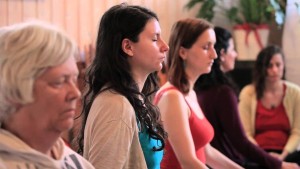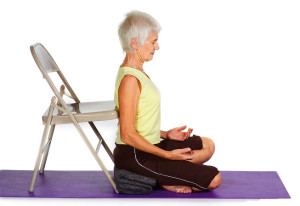
“Simply responding to the physical symptoms of disease might make sense for treating an acute infection or fixing a broken leg, but to beat chronic age-related conditions such as diabetes, heart disease and dementia, we will need to embrace the fuzzy, subjective domain of the mind.” – Jo Marchant
Aging seems inevitable. But, different species age at different rates. Everyone knows for example that dogs’ life span is about 1/6th of the human life span. This suggests that there must be some biological mechanism that regulates aging. Recent genetic research is starting to uncover that mechanism. It has been found that the genes, coded on the DNA molecule, govern cellular processes in our bodies. One of the most fundamental of these processes is cell replication. Cells are constantly turning over. Dying cells or damaged are replaced by new cells. The cells turn over at different rates but most cells in the body are lost and replaced between every few days to every few months. Needless to say were constantly renewing ourselves.
As we age the tail of the DNA molecule called the telomere shortens. When it gets very short cells have a more and more difficult time reproducing and become more likely to produce defective cells. On a cellular basis this is what produces aging. As we get older the new cells produced are more and more defective. The shortening of the telomere occurs each time the cell is replaced. So, slowly as we age it gets shorter and shorter. This has been called a “mitotic clock.” This is normal. But, telomere shortening can also be produced by oxidative stress, which can be produced by psychological and physiological stress. This is mediated by stress hormones and the inflammatory response. So, chronic stress can accelerate the aging process. In other words, when we’re chronically stressed we get older faster.
Fortunately, there is a mechanism to protect the telomere. There is an enzyme in the body called telomerase that helps to prevent shortening of the telomere. It also promotes cell survival and enhances stress-resistance. Research suggests that processes that increase telomerase activity tend to slow the aging process by protecting the telomere. One activity that seems to increase telomerase activity and protect telomere length is mindfulness practice (see http://contemplative-studies.org/wp/index.php/2015/12/04/retreat-for-longevity/ and http://contemplative-studies.org/wp/index.php/2015/07/17/aging-healthily-yoga-and-cellular-aging/). Hence, engaging in mindfulness practices may protect the telomere and thereby slow the aging process.
In today’s Research News article “Telomerase activity and its association with psychological stress, mental disorders, lifestyle factors and interventions: A systematic review”
Deng and colleagues review the published scientific literature on factors that influence telomerase activity. They report that chronic, long-term, psychological stress but not acute, short-term, stress reduced telomerase activity. They also report that Major Depressive Disorder is associated with reduced telomerase activity. Importantly, they find that diet, exercise, and mindfulness practices all increase telomerase activity. In particular, they found that “physical exercise, diet micronutrient supplementation, mindfulness meditation, Qigong practice or yoga mediation resulted in increase in telomerase activity.”
These are very exciting outcomes and suggest that mindfulness practices might contribute to longevity by reducing cellular aging. How might these very different practices increase telomerase activity? All of these mindfulness practices have been shown to reduce the psychological and physiological responses to stress (see http://contemplative-studies.org/wp/index.php/category/research-news/stress/). Since, chronic stress has been shown to reduce telomerase activity and in turn accelerate cellular aging, it would seem reasonable to conclude that practices that reduce stress responses would protect the individual from the deleterious effects of stress and increase telomerase activity. There may be other mechanisms involved, but this would seem to be the obvious one.
These findings suggest that mindfulness practices may improve longevity by protecting us from the damaging effects of chronic stress. By making us more mellow, we age slower.
So, age healthily: improve cellular health with mindfulness.
“it is possible that greater presence of mind promotes a healthy biochemical milieu and, in turn, cell longevity,” – Elizabeth Blackburn
CMCS – Center for Mindfulness and Contemplative Studies








